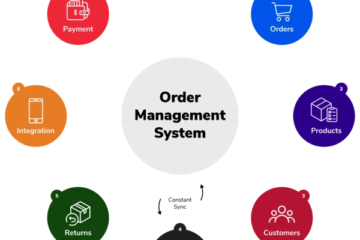Fleet businesses often face the challenge of not only managing their operations efficiently but also growing in an increasingly competitive market. The right technology can make all the difference in setting these businesses on the path to success. But what exactly can fleet managers use to give their business that much-needed boost? Let’s dive into some of the top technologies that can help fleet businesses grow, starting with some essential tools and moving on to advanced options.
GPS Fleet Tracking: The Backbone of Modern Fleet Management
One of the first technologies any fleet business should consider is GPS fleet tracking. This technology isn’t just about knowing where your vehicles are at any given moment; it’s about harnessing good quality data to improve efficiency and reduce costs. GPS fleet tracking systems offer real-time updates on vehicle locations, helping managers make smarter decisions. This can include rerouting drivers to avoid traffic, ensuring that the closest vehicle responds to a service call, and even monitoring driver behavior to promote safer driving habits.
The benefits don’t stop there. GPS tracking can also provide important insights into fuel consumption, vehicle wear, and even overall fleet productivity. By analyzing this data, fleet managers can identify patterns and make adjustments that save money and improve performance. For example, by recognizing routes that consistently lead to higher fuel consumption, businesses can find alternative paths that are more fuel-efficient.
When businesses can track fleet operations through GPS technology it allows them to streamline processes, reduce unnecessary costs, and ultimately, improve customer satisfaction. Whether you’re managing a small fleet or a large one, GPS tracking is an essential tool for growth.
Telematics: The Role of Technology in Modern Business Startups
As fleet businesses look to grow, integrating telematics systems into their operations can be crucial. Telematics technology combines telecommunications and informatics to send, receive, and store information about vehicles and drivers. This data is invaluable in optimizing fleet performance and ensuring the smooth operation of all vehicles under management.
Telematics is particularly beneficial for startups and growing businesses that are seeking to leverage technology in modern business startups. This technology can provide detailed reports on vehicle health, driver performance, and fuel efficiency, allowing fleet managers to make data-driven decisions. For example, if a telematics system detects that a vehicle is consistently experiencing engine trouble, it can alert the manager to schedule maintenance before a breakdown occurs, thus preventing costly downtime.
Also, telematics systems can also enhance driver safety by monitoring behaviors such as speeding, harsh braking, and rapid acceleration. By addressing these issues proactively, businesses can reduce the risk of accidents, lower insurance premiums, and promote a culture of safe driving within their teams. For any fleet business looking to grow, telematics offers a powerful way to use data to drive efficiency and improve operational outcomes.
Fuel Management Systems: Maximizing Savings With Fleet Fuel Cards
Fuel costs are one of the most significant expenses for any fleet business. With fluctuating prices and the sheer volume of fuel required, it’s crucial to have a system in place that helps manage these costs effectively. Enter fuel management systems, which are designed to track and control fuel usage across your fleet.
One of the standout options in this category is the use of fleet fuel cards with discounts. These cards not only provide a convenient way to purchase fuel but also offer substantial savings through discounts. When fleet managers can save on fuel, they directly increase the profitability of their operations. It’s not just about cutting costs; it’s about making sure that every dollar spent on fuel is optimized.
These fleet fuel cards also come with additional benefits, such as detailed reporting on fuel purchases. Managers can track where and when fuel is purchased, monitor spending, and identify any anomalies that could indicate fraud or misuse. With the right fuel management system, fleet businesses can take control of their fuel expenses and reinvest those savings into other areas of the business.
Maintenance Management Software: Keeping Your Fleet in Top Shape
Fleet maintenance is another crucial aspect of running a successful fleet business. Unexpected breakdowns can lead to delays, customer dissatisfaction, and costly repairs. This is where maintenance management software becomes indispensable.
Maintenance management software is designed to track the health and maintenance needs of every vehicle in a fleet. It allows fleet managers to schedule regular maintenance, monitor vehicle performance, and predict when a vehicle will require servicing. By proactively managing maintenance, businesses can avoid the high costs associated with emergency repairs and vehicle downtime.
Furthermore, this software often includes features that help with inventory management, ensuring that necessary parts and supplies are always on hand. It can also create reports that provide insights into maintenance costs and trends, helping managers make informed decisions about when to replace vehicles or upgrade equipment.
By keeping vehicles in optimal condition, maintenance management software not only helps fleet businesses avoid costly downtime but also ensures that vehicles are safe and reliable, which is critical for both drivers and customers.



